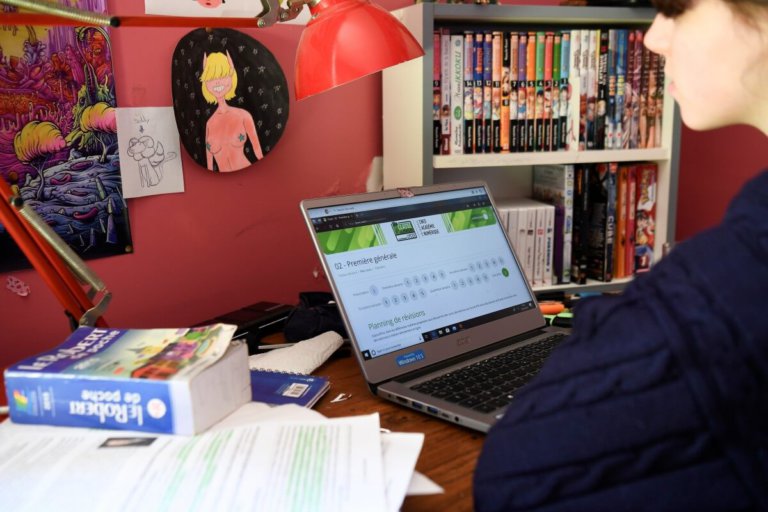
Flexibility and freedom. These were the two aspects of homeschooling that Jacquelyn Thayer loved when she was homeschooled from third grade until high school graduation, and what gave her the ability to develop her passions.
Now 34, Jacquelyn is a writer and editor with her own blog. She graduated from DePaul University with her Master in Communications in 2014 and Texas Lutheran University with a BA in English in 2007.
She told Study International, “While many families will follow a more conventional school day schedule, I tended to do my work quite quickly, and worked better at some hours than others (for example, to this day I’m a night owl but am not so great with early mornings).
“This, combined with being able to pursue some travel opportunities that arose over the years, meant that it was much easier to work at a schedule that differed from the same daily early morning to late afternoon that I’d had my first few years of school.”
This flexibility that homeschooling gave her and not being bound to a classroom all day gave her time to pursue her own interests. “As an avid fan of history, it was amazing preparation for university later,” she said.
Students of all levels — from primary all the way to PhD level — are all having to shift to online learning and homeschooling due to the pandemic.
But even before the outbreak, there has been a rise in homeschooling students.
Last year, the National Center for Education Statistics (NCES) found that the number of homeschooled students in the US increased from 850,000 in 1999 to 1,690,000 in 2016, meaning that the percentage of homeschooled students increased from 1.7 percent to 3.3 percent in that same time period.
So what are the main benefits of homeschooling and how can you use it to your advantage as an online student?
Make use of different online tools
Today, students are at a great advantage when it comes to homeschooling and online learning — thanks to technology.
Emma Hurrell, 18, has been homeschooled for the past two years as she prepares for her A-Levels. The student who is from London, England uses online platforms such as Open Study College, Online Learning College and Mytutor for 1-2-1 tutoring.
She told StudyInternational, “My online platforms have helped me achieve the grades and I 100 percent think without the internet homeschooling would be much much harder.”
Learn new skills

Homeschooling students develop important skills from an early age such as critical thinking and self-motivation. Source: Oli Scarff/AFP
Although there are many online resources available for homeschooling and online students today, it won’t help you get good grades if you don’t have self-discipline.
Those who study from home need to be self-motivated in order to ace their studies. The good news is this is a skill you can quickly develop.
Jacquelyn explained how her success in homeschooling was a combination of support from her parents, her own self-discipline and working with the main high school in her hometown.
“My parents were officially the instructors, but I learned best by having a syllabus laid out for me and then just doing the reading and work on my own, seeking direct help when any challenges arose. (I’ve always been a do-it-myself stubborn problem solver!)”
Emma spoke of the challenges she faced as a homeschooling student and being a self-learner. “What is difficult is when you don’t understand something there is no one to deeply explain the topic, so it’s all about your own self-motivation.”
She also said that studying online has prepared her for university as it has taught her skills like self-discipline, self-motivation, time management, independence and critical thinking.
You will also learn how to manage your time better as you set your own schedule.
Jacquelyn advised those currently studying from home, “Without the confines of the usual schedule, take things at your own pace as you’re best allowed to — if you can do something more quickly than you would in the classroom, do so; if something is genuinely challenging, set aside the extra time to focus on it.
“Use this time too, to explore some new interests — if staying home gives you a couple of extra hours in the day, then it’s a great time to try reading about something new, or tackling a hobby you maybe hadn’t considered before. It’s not only fun, but really can help you both now and in the future, and maybe even open up a new career or study pathway. “
Don’t forget to socialise

Siblings study during home schooling on March 18, 2020 in New Rochelle, New York. Schools in New Rochelle, a hot spot in the U.S. for the coronavirus (COVID-19) pandemic, were suspended on March 13, and parents have been tasked with carrying out distance learning programs at home. John Moore/Getty Images/AFP
The main drawback about homeschooling and online learning is that it doesn’t allow for one of the best parts of going to a traditional school: Friends.
But socialising doesn’t have to confined to the classroom or in a school environment. Rather, homeschooling students need to be proactive about finding ways to socialise with people their own age.
For Jacquelyn, she took a few extracurricular classes at a small school during her high school years which gave her the change to mingle with classmates. She even got the change to go to prom and work on a yearbook.
She also participated in other extracurricular activities, like choirs, church programmes and dance.
As for Emma, she normally meets up friends from her past schools once a week, and she also joins volunteering groups.
During the current pandemic, you might not be able to physically socialise but you can always keep in touch with your friends via video chats and social media.
Seek career counselling
Homeschooling and online learning students might miss out on career counselling services offered by schools and universities, so you may need to take the extra initiative to get career advice.
Jacquelyn said, “I could have used a bit more outside direction — everything about the university application process was up to my parents and me to manage, and I’ve wondered if having a guidance counselor or other teacher might have been beneficial in setting me on a more focused, career-oriented study path right out of the gate as well as finding more scholarships to reduce loan burden.”
Liked this? Then you’ll love…
What you need to know about taking the TOEFL, GRE tests at home
It’s true. Online learning courses can improve your critical thinking skills








